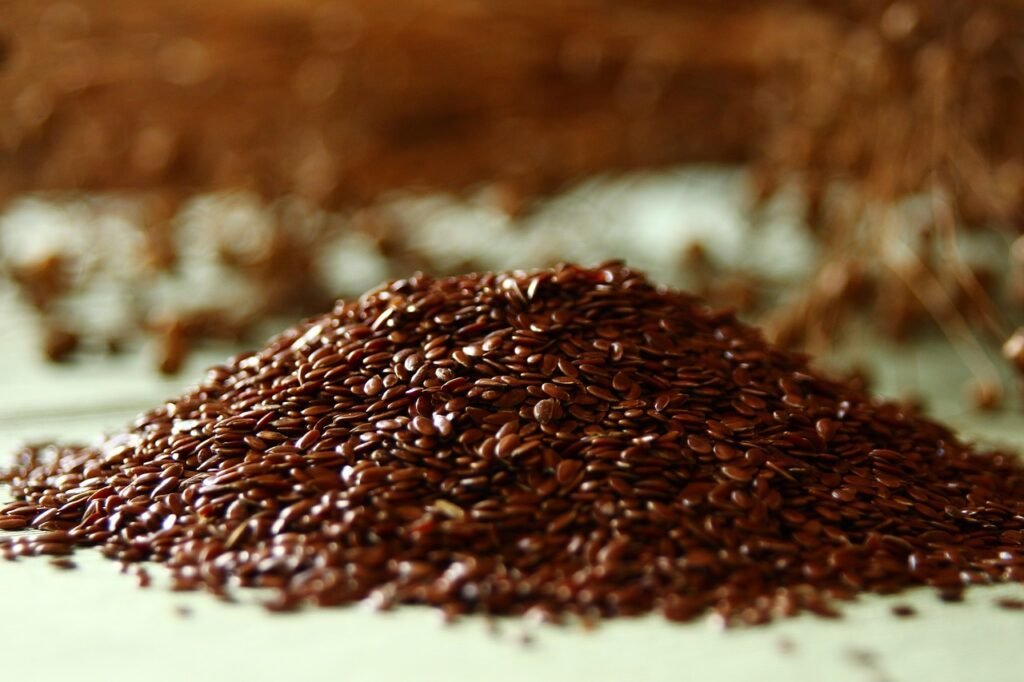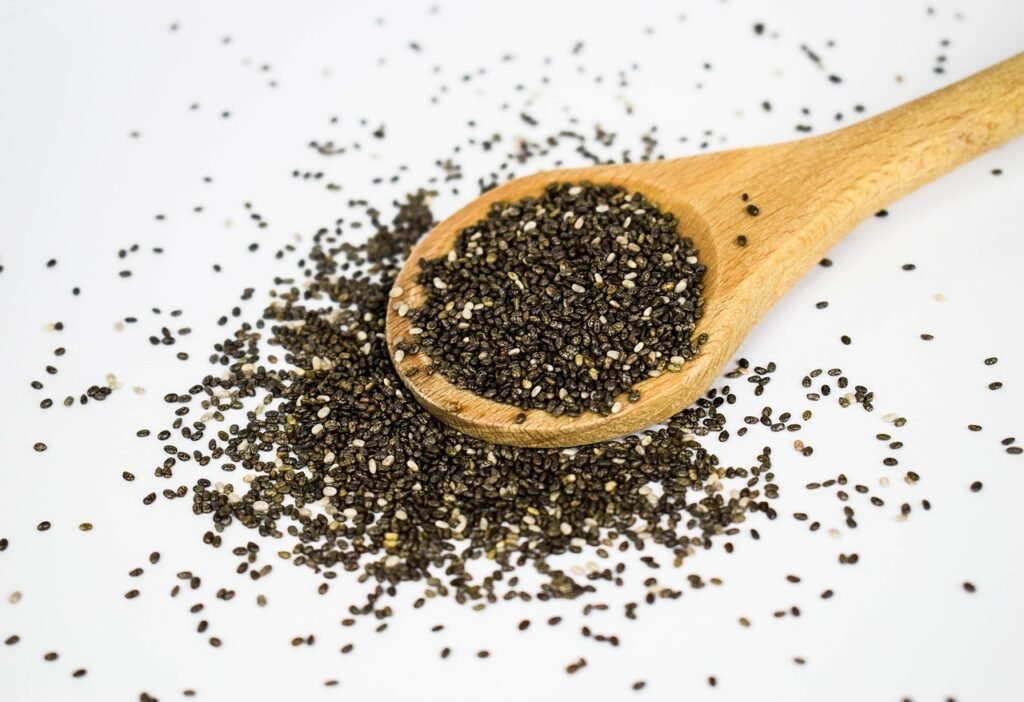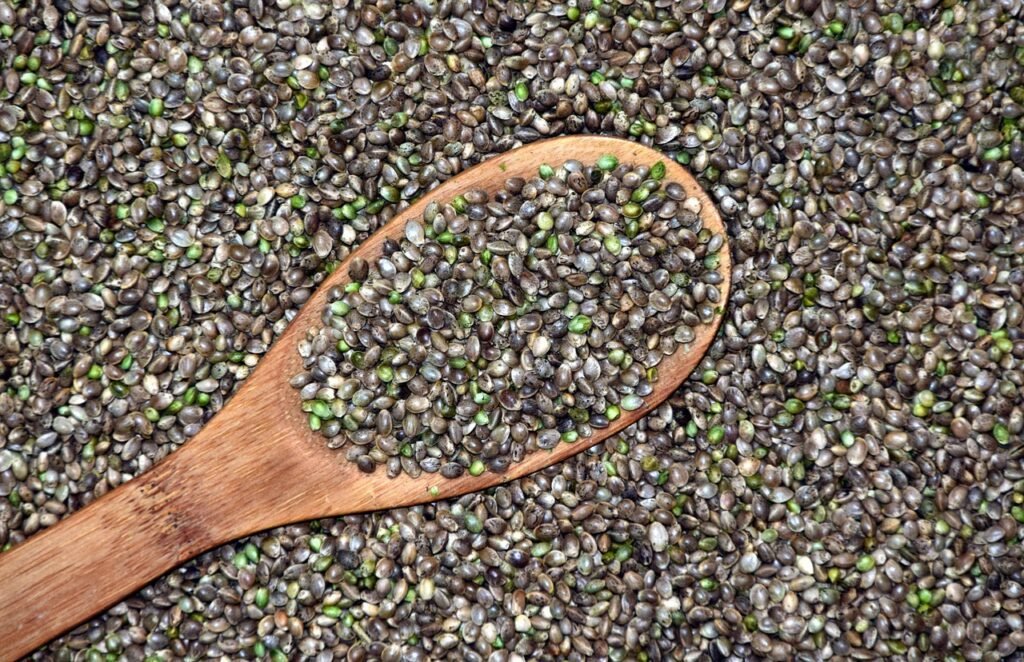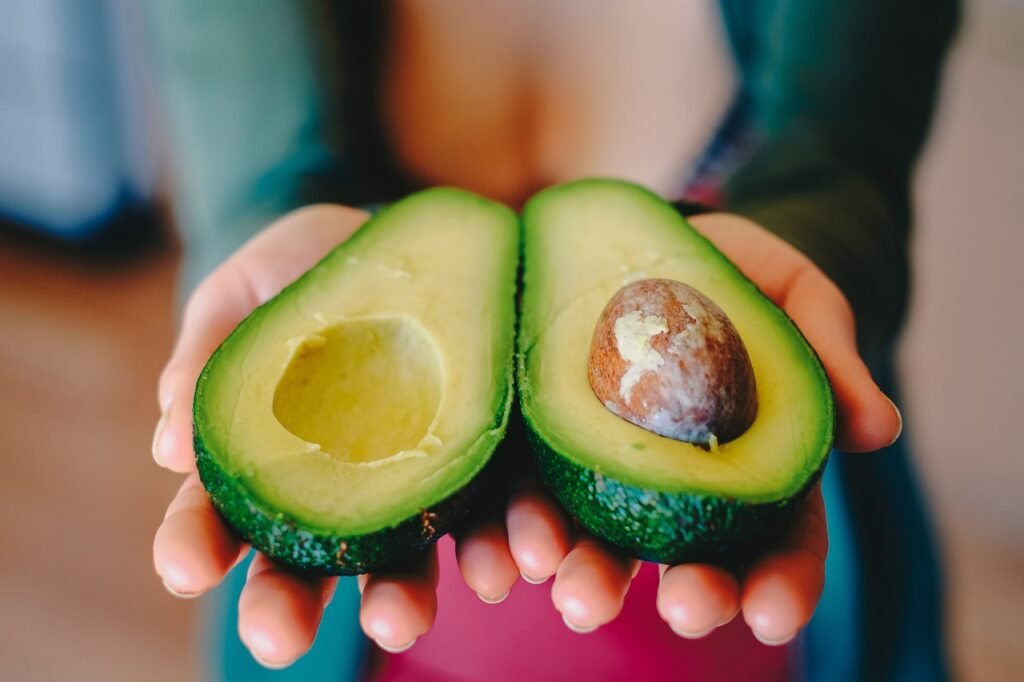

Omega-3 fatty acids are essential to our well-being and it’s benefits are countless. Some of the main benefits of the power of vegan Omega-3 sources supporting heart health, cognitive function, and more.
For those following a vegan lifestyle, obtaining these essential nutrients can be achieved through plant-based sources, providing a compassionate alternative to traditional animal-derived options. In this article, we will explore various vegan omega-3 sources, their nutritional content, and the health benefits they offer.
Suggested: Collagen Benefits, Usage and more
Plant-Based Omega-3 Sources


1. Flaxseeds and Flaxseed Oil:
📌 Flaxseeds: 1.6 grams of Omega-3 Fatty Acids(Alpha-Linolenic Acid, ALA) per tablespoon
📌 Flaxseeds oil : 7 grams of Omega-3 Fatty Acids(Alpha-Linolenic Acid, ALA) per tablespoon
Flaxseeds, also known as linseeds, are small, brown or golden seeds that come from the flax plant. They have been cultivated for thousands of years for their various uses, including as a source of nutrition and for their fibers.
Flaxseeds are rich in nutrients, particularly vegan omega-3 sources, dietary fiber, and antioxidant properties.
Flaxseeds are rich in alpha-linolenic acid (ALA), a precursor to other forms of omega-3. A tablespoon of flaxseed oil provides around 7.3 grams of ALA.
Both flaxseeds and flaxseed oil can be incorporated into a balanced and healthy diet. They can be added to smoothies, yogurt, cereals, or even in baking.
When using flaxseed oil, it’s best to avoid high heat cooking, as excessive heat can damage the delicate fatty acids. Additionally, flaxseed oil should be stored in a dark, cool place to prevent oxidation.
Related: Vegan protein sources


2. Chia Seeds:
📌 2.5 grams of Omega-3 Fatty Acids(Alpha-Linolenic Acid, ALA) per tablespoon
Chia have gained widespread popularity in recent years due to their impressive nutritional profile.
Despite their small size, chia seeds pack a powerful nutritional punch. Chia seeds rich in omega-3 fatty acids, dietary fiber, protein, vitamin-minerals and antioxidant properties.
Chia seeds are a nutritional powerhouse, containing approximately 2.5 grams of ALA per tablespoon.
They can be incorporated into a balanced and healthy diet. We can add to chia puddings, smoothies, yogurt, oatmeal, or even in baking. You can prepare delicious salads with chia seeds or used as an egg substitute in recipes.


3. Hemp Seeds:
📌 2 grams of Omega-3 Fatty Acids(Alpha-Linolenic Acid, ALA) per tablespoon
📌 5-7 grams of Omega-6 Fatty Acids(Linoleic Acid, LA) per tablespoon
Hemp seeds have omega-3 to omega-6 ratio, which is beneficial for overall health. The balance between these two types of essential fatty acids is important, as an excessive intake of omega-6 fatty acids, commonly found in many modern diets, can contribute to inflammation when not balanced with sufficient omega-3 fatty acids.
In addition to omega-3 and omega-6 fatty acids, hemp seeds also provide other valuable nutrients, like protein, fiber, vitamins, and minerals, making them a nutrient-dense addition to a balanced diet.
You can add them into salads, yogurts, or snacks.


4. Walnuts:
📌 2.5 grams of Omega-3 Fatty Acids(Alpha-Linolenic Acid, ALA) per one ounce
📌 1.5-2 grams of Omega-6 Fatty Acids(Linoleic Acid, LA) per one ounce
We have enjoyed with these nuts for centuries. they have unique taste, crunchy texture, and impressive nutrient profile.
Walnuts are rich in various essential nutrients, including Omega-3 fatty acids, Omega-6 fatty acids, protein dietary fiber, antioxidants, vitamin- minerals.
We can consume them as a nutritious snack or adding them to salads, oatmeal and baking can contribute to your omega-3 intake.
Suggested: No Sugar Diet Guide and 7 Days Diet List


5. Algal Oil Supplements
📌 200-300 mg of combined DHA and EPA (more bioavailable forms of omega-3) per capsule
Algal oil is a plant based oil derived from algae that naturally produce omega-3 fatty acids, particularly DHA and EPA. Algal oil has gained popularity as a sustainable and vegan-friendly alternative to traditional fish oil, which is a common source of omega-3s.


6. Seaweed and Algae:
Certain types of seaweed and algae are naturally rich in ALA. Including seaweed in your diet or exploring algae-based foods can be a creative way to boost your omega-3 intake.
The omega-3 content in seaweed and algae can vary significantly, and the specific amount may depend on factors such as the type of seaweed or algae, growing conditions, and processing methods are important.
When considering omega-3 intake from seaweed and algae, it’s important to be aware that the levels of EPA and DHA, especially in most seaweed, might not be as high as those found in fatty fish or algal oil supplements.


Contrary to popular belief related with Omega 3
ℹ️ Avocados are a nutritious fruit, but they are a significant source of omega-3 fatty acids. While avocados do contain some fat, particularly oleic acid. Oleic acid is a heart-healthy monounsaturated fat that is also found in olive oil.
Regarding omega-3 fatty acids, avocados primarily contain alpha-linolenic acid (ALA), which is a type of omega-3. However, the amount of ALA in avocados is relatively low compared to other food sources rich in omega-3s.
On average, one medium-sized avocado (about 200 grams) contains approximately 0.15 grams of ALA.
ℹ️ Olive oil is primarily composed of monounsaturated fats, with oleic acid being the predominant fatty acid. While olive oil is not a significant source of omega-3 fatty acids, it does contain a small amount of alpha-linolenic acid (ALA), which is a type of omega-3.
On average, one tablespoon (about 13.5 grams) of olive oil contains approximately 0.08 grams of ALA.
Suggested: What Is Intermittent Fasting: A Simple Guide
Health Benefits of Vegan Omega-3:
- Heart Health 🫀
- ALA, the primary omega-3 found in plant-based sources, has associated with lower risks of cardiovascular disease. It may help reduce blood pressure and lower cholesterol levels.
- Brain Function 🧠
- While DHA and EPA are more directly link to cognitive function, the body can convert ALA into these forms. Adequate ALA intake may contribute to optimal brain health.
- Joint and Inflammatory Health 🦴
- Omega-3 fatty acids exhibit anti-inflammatory properties, which can benefit those with conditions such as arthritis and promote overall joint health.
- Skin and Hair Health 👩🏽🦳
- Omega-3 play a role in maintaining healthy skin and hair. Vegan sources contribute to the nourishment of the skin and the promotion of a radiant complexion.


Adopting a vegan lifestyle doesn’t mean sacrificing the essential benefits of omega-3 and 6 fatty acids. Through mindful choices and incorporating plant-based sources into your diet, you can nourish your body while aligning with your values.
Whether it’s flaxseeds, chia seeds, walnuts, or algal oil supplements, vegan omega-3 sources offer a humane- ethical and healthful way to support your overall well-being. As with any dietary change, it’s advisable to consult with a healthcare professional for personalised guidance based on your individual needs. 🌱
